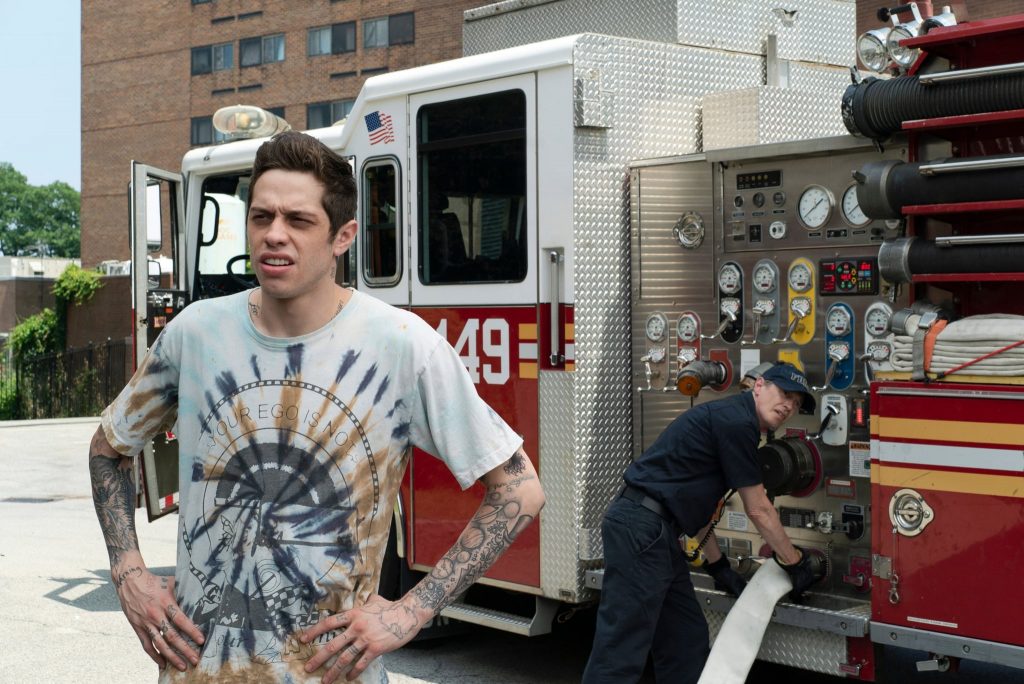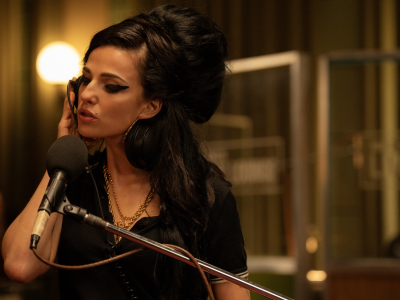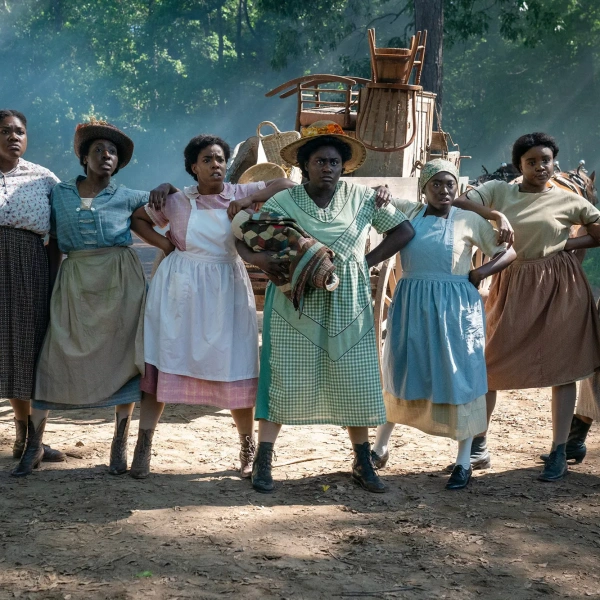by Nick L’Barrow
Comedian Pete Davidson has never publicly shied away from the influence his deceased father has had on his life. Tragically, Davidson’s was one of the many brave firefighters who died during the September 11 terror attacks. Whether it’s talking about the undying love Davidson has for his dad or using him as a punch line for a stand-up routine, the presence that his father still has in his life is abundant. This is no more apparent than in Davidson’s screenplay debut and star-vehicle, The King of Staten Island.
Directed and co-written by established comedic filmmaker, Judd Apatow (Knocked Up, The 40 Year Old Virgin), The King of Staten Island is the story of Scott (Davidson), a recluse who’s put his life and aspirations on hold 15 years after the sudden death of his firefighter father. Yet to deal with the emotional weight this bares on him all this time later, Scott spends his days smoking weed with his friends in his mum’s (Marisa Tomei) basement and dreams of becoming a tattoo artist. It’s not until a lapse in judgement on Scott’s behalf (albeit, a hilarious lapse in judgement), that collides the paths of his mother and divorced firefighter, Ray Bishop (Bill Burr). As the begin to become romantically involved each other, much to the behest of Scott, he decides it’s time take steps forward and regain control of his life.

Apatow is very familiar with this territory when it comes to the genre of “dramedy”. His filmography leading up to Staten Island is much of the same – real, human stories told in an amplified comedic manner. Apatow has always been able to capture humanity at it’s most raw, but when those moments are the foreground to a comedic background, it can sometimes be a great tool to catch an audience off guard emotionally. Comedy helps the audience invest into his characters. If they make you laugh, you’re more inclined to feel attracted to their story. Then within a heartbeat, you’re in tears as you see the truly heartbreaking moments that life can bring. The King of Staten Island uses this to great effect.
Compared to his previous films (potentially with the exception of 2009s Funny People) this is Apatow’s least funny movie, which is in no way a criticism. There are still plenty of hilarious moments, and even a few that render a proper laugh-out-loud. However, except for maybe one or two comedic set-ups, this leans more towards the dramatic rather than comedic side, taking the time to build up the emotional investment into Scott and the supporting characters. The main criticism Staten Island faces is the same one that Apatow has faced his whole career – the movie is just a tad too long. Clocking in at 2hr 16min, there are points where the runtime is felt. It’s never an overbearing feels that warrants a need for the movie to move along faster, and the majority of the scenes do feel necessary to the story, but a little polish up here and there would’ve helped with the pacing issues that could be found.

At its core, Pete Davidson is without a doubt 90% of the reason this film is as good as it is. His performance is fantastic. The argument can be made that he is playing himself which isn’t a stretch, but in this movie, it works perfectly because it is the grounded, nuanced performance that is required. This story is incredibly personal to him, and when a film is approached with this level of authenticity it’s impossible to not be completely drawn in to the atmosphere and characters. Every character, no matter how fleshed out or not they are, feels like a real person in Staten Island, New York. However, it’s within this film’s relationships where the authentic feel is most prevalent.
Davidson and Tomei have some brilliant and emotional moments together on screen. Both their characters subconsciously feed into their co-dependant relationship. As they both attempt to cope with their loss of a husband and father, their priority is to not lose each other, no matter what the cost. It’s not necessarily a healthy relationship, but the movie doesn’t portray it as such, which creates an amazing dynamic on screen. Once the relationship with Ray Bishop (Burr) develops, the dynamic shift and tension it then creates between Scott and Bishop is then a great focal point for the story, with amazing juxtaposition with how Scott treats both relationships. With his mum, it’s smooth sailing with no pressure to step forward in life, but with Ray, he’ll work as hard as he can to sabotage it all, showing the potential Scott has when he really goes for what he is passionate about. All three leads (Davidson, Tomei and Burr) are brilliant, and with Tomei having proven her acting prowess in previous roles, it allows for Davidson and Burr to shine with performances we haven’t really seen from them before, but performances that we would love to see again and again.

The screenplay is approachable for all audiences, unafraid to take on it’s mature subject matters in a way that doesn’t feel like it’s trying to be smarter than the audience. The movies approach on themes like grief and co-dependence are then complimented with Davidson’s signature dark humour, which is where the majority of Staten Island’s laughs are found.
A mixture of grounded performances and incredibly authentic story make The King of Staten Island an emotionally immersive experience. Pete Davidson tells an amazingly personal story, leaving nothing unturned thematically and gives a leading performance that leaves nothing else desired. There’s equal amounts of laughs and tears, with a closing 10 minutes that will sit with you long after the credits roll.
Review by Nick L’Barrow










